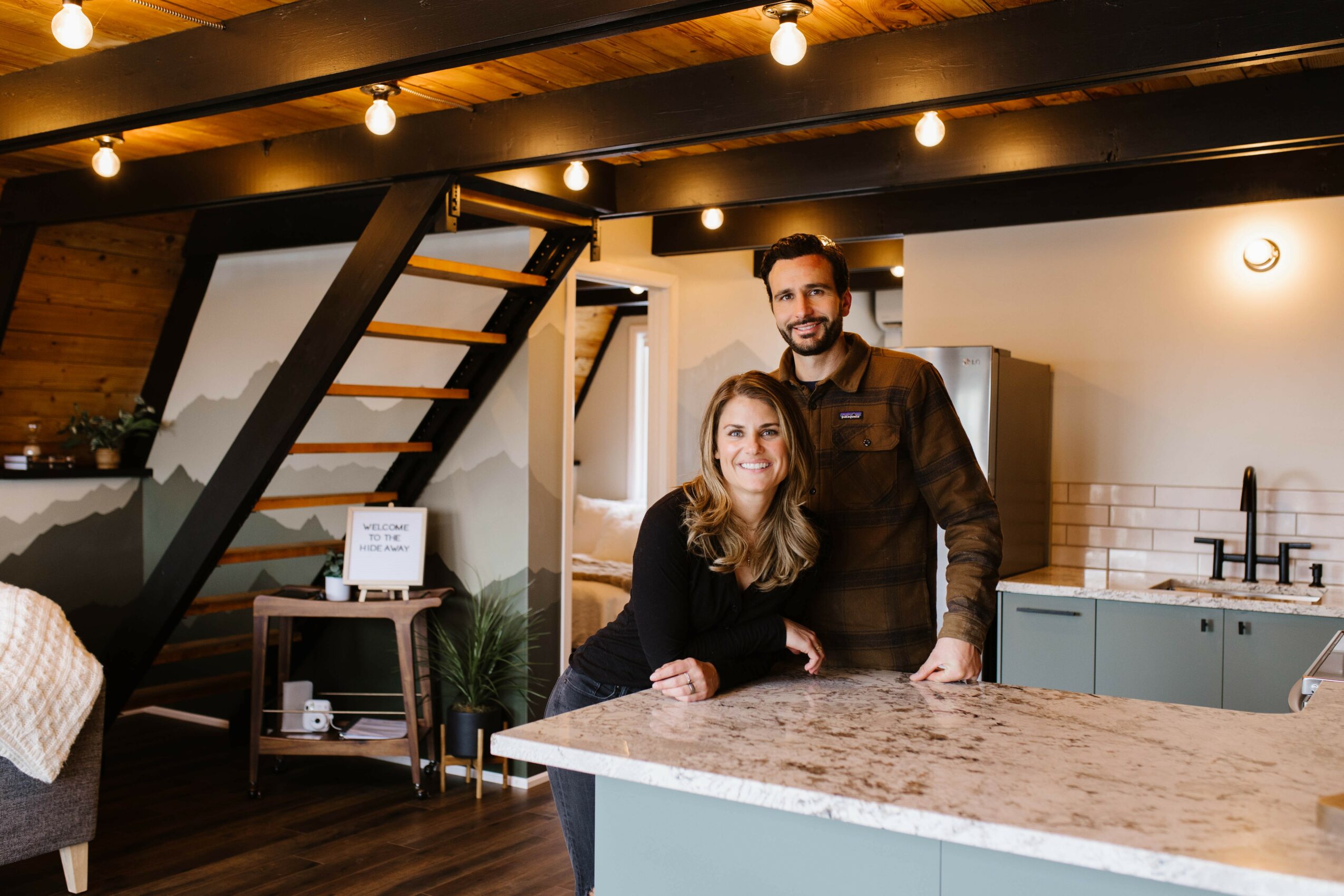

We’re looking forward to introducing you to Rocky & Gianni Donati. Check out our conversation below.
Rocky & Gianni, it’s always a pleasure to learn from you and your journey. Let’s start with a bit of a warmup: What do the first 90 minutes of your day look like?
If we’re at The Forgotten Cabins, the first 90 minutes of our day are intentionally slow and off-grid.
We wake up with the light–no alarms, just sunrise slipping through the trees. One of us usually starts a fire if it’s cold, or opens the windows wide if it’s warm. We make coffee, barefoot, in silence. It’s not performative “morning routine” stuff, it’s just quiet, grounding, and real.
Then we move. Sometimes that’s a hike with the dogs, sometimes it’s stretching on the deck, sometimes it’s casting a line in the creek before the rest of the world feels awake. Nature sets the pace, not our phones, not our inbox.
That rhythm changes when we’re off the mountain, of course. But even then, we protect that first hour or so like it’s sacred. No tech. No input. No decisions. Just time to feel like ourselves before the outside world asks anything of us.
Because if we’ve learned anything from building The Forgotten Cabins, it’s this: presence is the point. And how you start the day deeply shapes how you move through it.
Can you briefly introduce yourself and share what makes you or your brand unique?
We’re Rocky and Gianni Donati, the couple behind The Forgotten Cabins–two remote tiny cabins tucked in the mountains outside of Park City, Utah at 8,000 feet. What started as our own personal escape from burnout in San Francisco has evolved into something bigger: a quiet invitation for others to return to what matters.
The Treehouse and The Hideaway are not just vacation rentals, they’re handcrafted spaces designed to help people slow down, unplug, and reconnect with themselves, their loved ones, and the natural world. We built (and rebuilt) these cabins with intention and reverence and we continue to care for them as sacred spaces, not trendy getaways.
We’re not interested in scaling endlessly or offering curated perfection. What makes The Forgotten Cabins special is what you feel when you’re there–the hush of snow, the flicker of firelight, the sense that you finally have time to hear yourself think again. That’s what we’re building. Not a brand, but a rhythm. A return.
Okay, so here’s a deep one: What breaks the bonds between people—and what restores them?
What breaks bonds is often more subtle than we expect. It’s not usually one dramatic event, it’s the slow erosion of presence. The texts unanswered. The truths unspoken. The moments we’re physically near each other but emotionally checked out. What breaks bonds is disconnection: from ourselves, from our needs, and then from each other.
Busyness breaks bonds. So does unexpressed resentment. So does the pressure to be “fine” when we’re not. But what restores those bonds? Stillness. Time. Intention. Slowness. Nature. Honesty.
We’ve seen it again and again at The Forgotten Cabins. People arrive exhausted, fragmented, or out of sync. And then, after a few hours of quiet, a few days of no noise, no pressure, they start to come back to themselves. They start to really see each other again. They build a fire together. Share coffee on the deck. Say the things they didn’t know they needed to say.
Presence restores. Simplicity restores. Time without performance or productivity restores.
We believe deep connection is a rhythm, not a task. And sometimes, the best way to rebuild what’s been frayed is to go somewhere quiet and just be together, without expectation.
That’s why we built The Forgotten Cabins. Not just for escape, but for return.
What did suffering teach you that success never could?
Suffering taught us how to feel again. Success never asked us to do that.
Success applauds performance–the packed schedule, the next milestone, the curated version of a life. For a while, we were good at that. We built the careers, lived in the right city, checked the right boxes. But we were quietly unraveling. And no one applauds the unraveling.
Suffering doesn’t let you perform. It strips everything down. It asks uncomfortable questions. It reveals what you’ve been ignoring, in your body, in your relationships, in your choices. It taught us that we could no longer outsource our peace to “someday.” That we had to slow down, feel the grief, sit with the emptiness, and choose a different way.
It also taught us the sacredness of small things: a hot drink in the cold, a breath without urgency, a quiet morning where no one needs anything from you. It taught us how to live closer to the bone where presence matters more than productivity, and connection matters more than control.
Success told us to keep going.
Suffering told us to come home.
That’s what led us to build The Forgotten Cabins, not from success, but from the space suffering created when everything else stopped working.
Alright, so if you are open to it, let’s explore some philosophical questions that touch on your values and worldview. Where are smart people getting it totally wrong today?
We think a lot of smart, well-meaning people are getting it wrong by confusing more with meaningful, and confusing noise with knowledge.
The world rewards output. It celebrates being “booked and busy,” building faster, scaling bigger, constantly optimizing. But that pace often disconnects people from their actual lives. From their bodies. From their creativity. From their joy.
Smart people are burning out trying to be efficient at everything instead of present for anything.
We’ve lived that. And we’ve watched guests show up to The Forgotten Cabins carrying it too–overwhelmed, overstimulated, unsure how to stop. But after a few days of firelight and forest, they remember. That clarity and connection don’t come from pushing harder. They come from creating space. From silence. From slowness.
So what smart people are getting wrong isn’t intellect, it’s rhythm.
They’re trying to solve soul-level problems with strategy.
But sometimes, the most intelligent move is to stop striving and listen.
That’s what we’re building at The Forgotten Cabins, not just a place to escape, but a place to remember.
Okay, so let’s keep going with one more question that means a lot to us: What are you doing today that won’t pay off for 7–10 years?
We’re choosing a slower path and that almost never pays off right away.
Every day, we’re investing in things that grow quietly and beneath the surface: relationships with guests who come back year after year, restoration of land that will thrive long after we’re gone, stories whispered into cabin walls that will someday hold generations of memory.
We’re also building our business around enough, not “as much as possible.” That choice doesn’t maximize short-term revenue, but it protects our sustainability, creativity, and integrity for the long haul.
The cabins themselves are long-game investments. Every time we choose real materials, hand-built furniture, or limit our bookings to preserve quality–we’re prioritizing longevity over speed. It’s slower to build that way. But 10 years from now, these spaces will still be standing strong, still holding space for people to come home to themselves.
And on a personal level, we’re learning how to live in a way that we hope our future selves will be proud of. One that values presence, place, and purpose more than hustle, scale, or validation.
We don’t always know how it will pay off, but we trust that it will. Because the things that last tend to grow slowly.
Contact Info:
- Website: https://www.theforgottencabins.com
- Instagram: @theforgottencabins
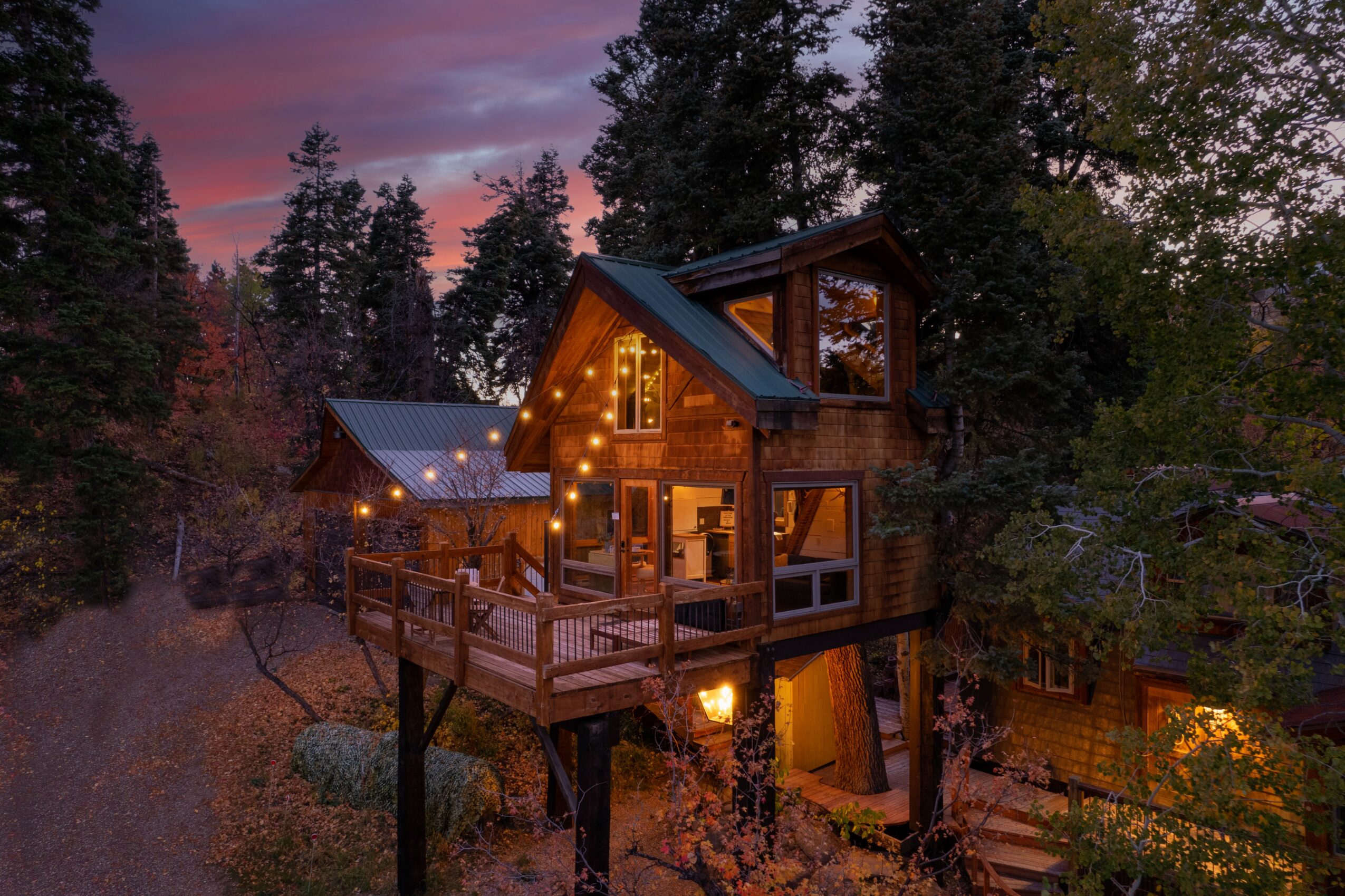
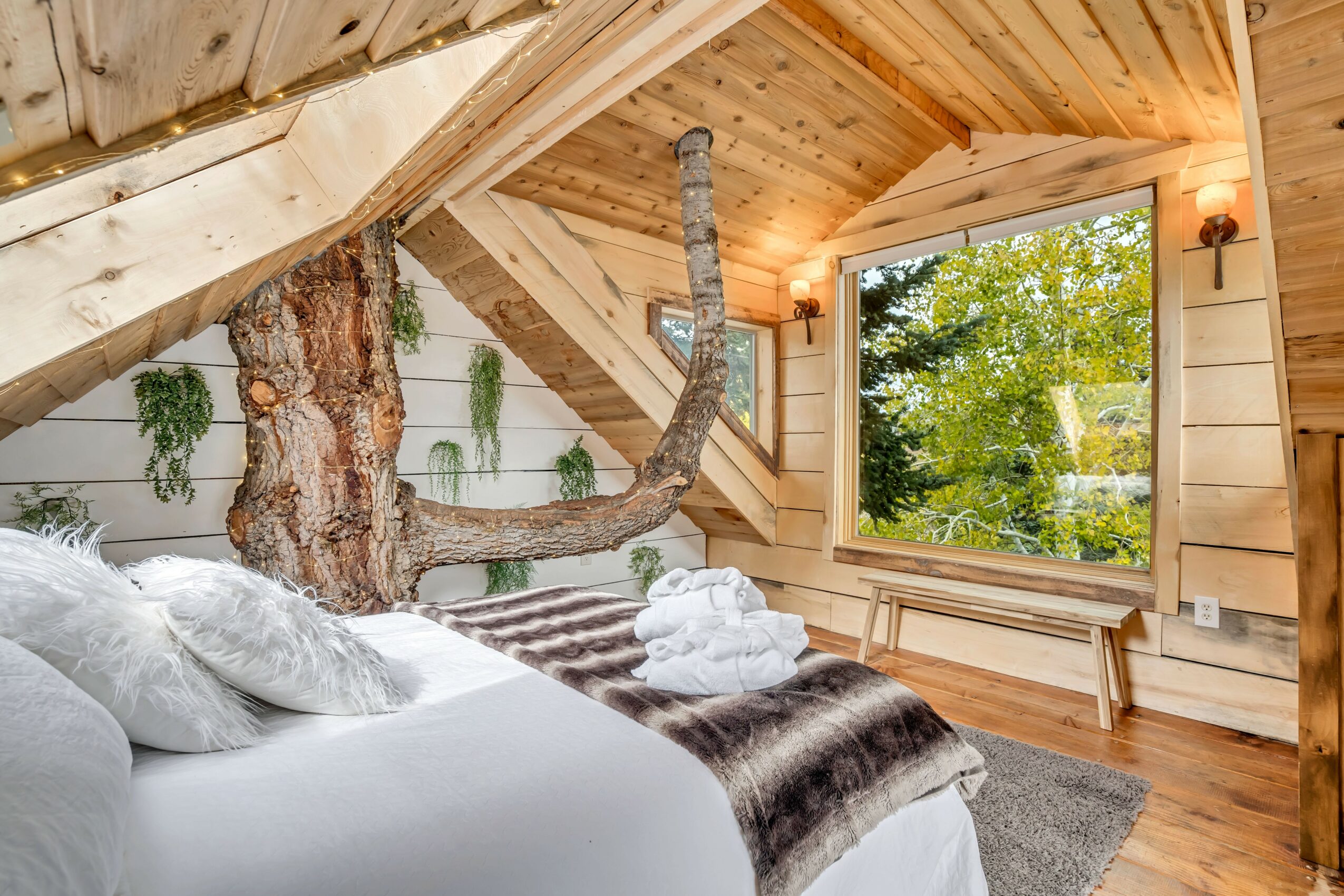
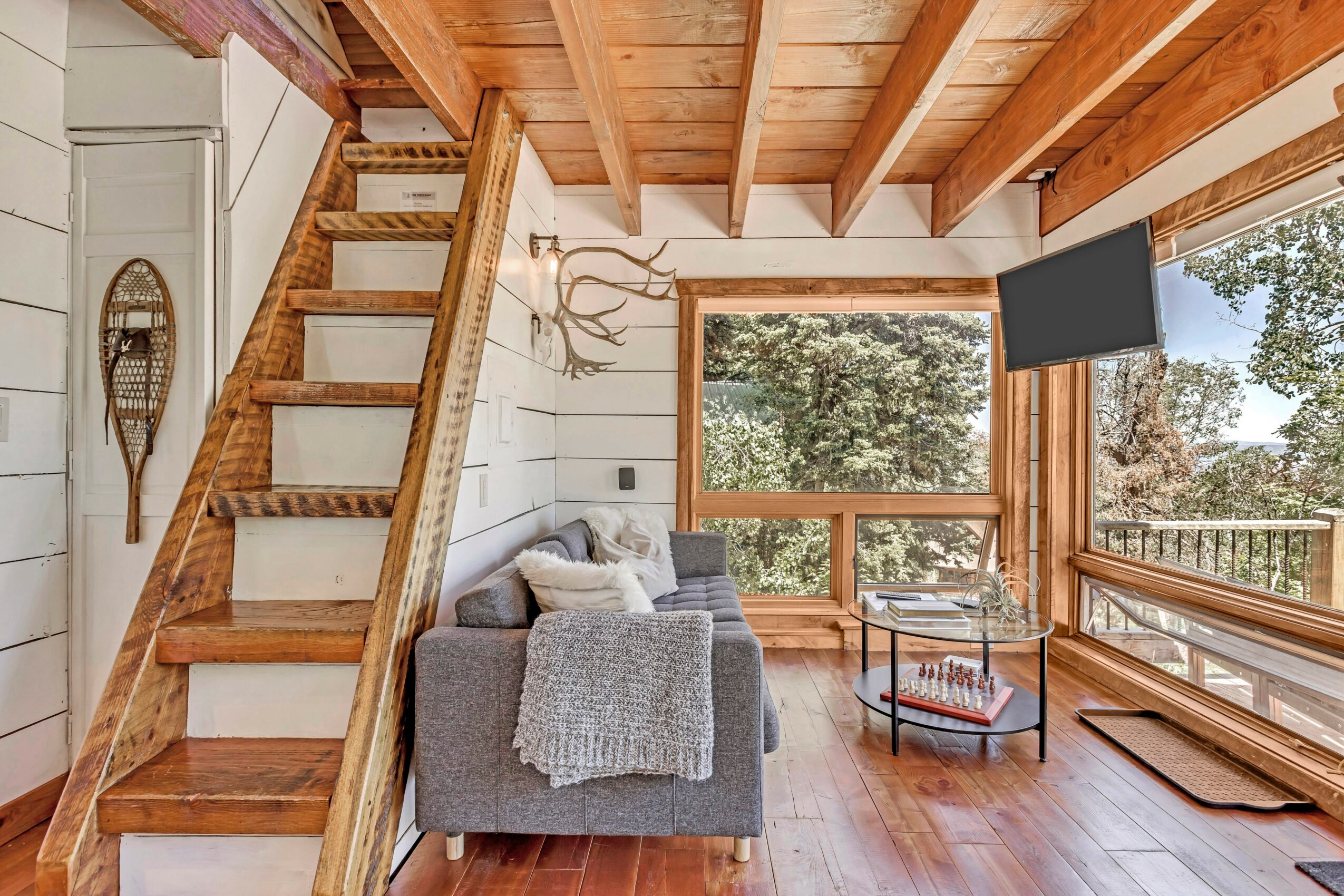
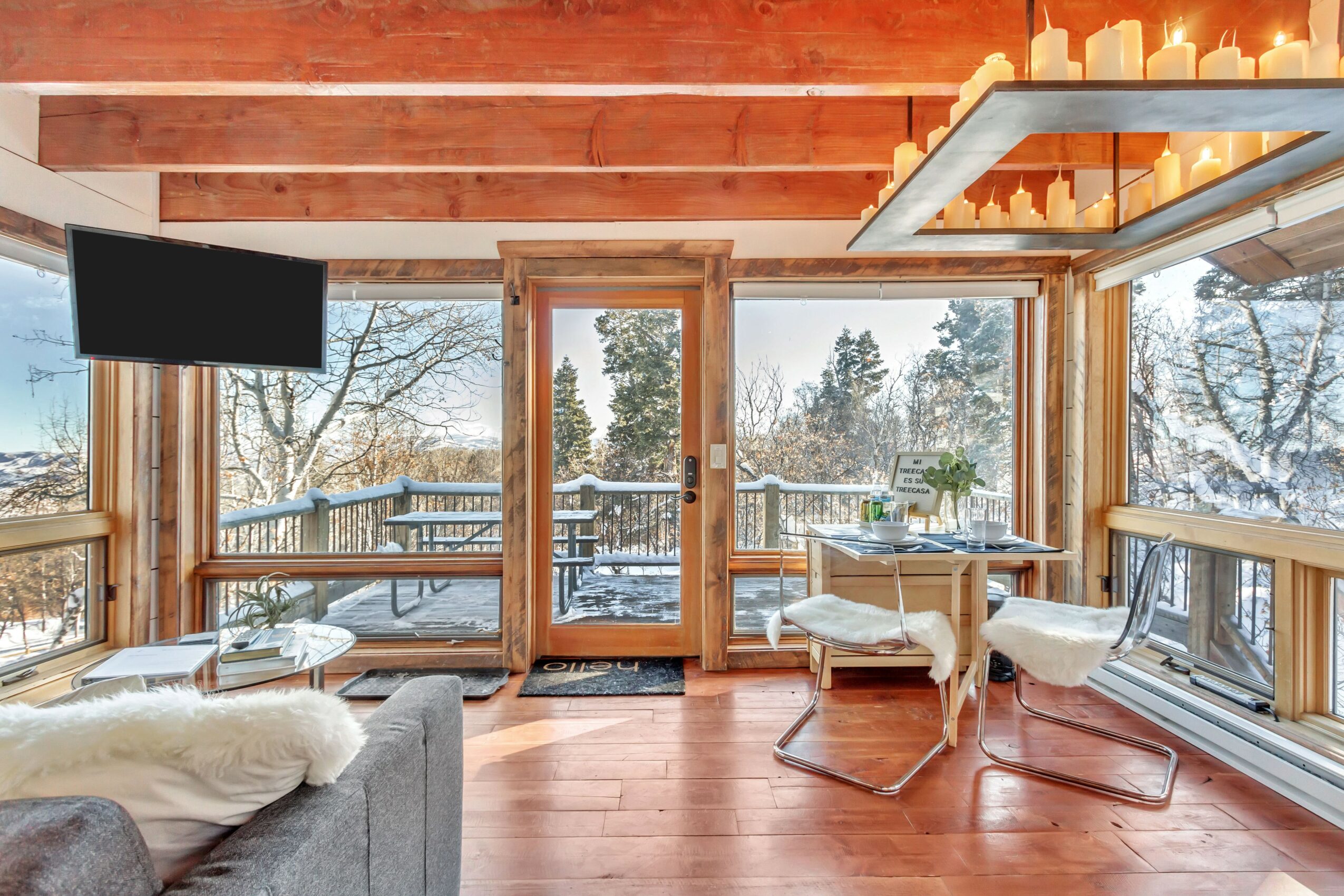
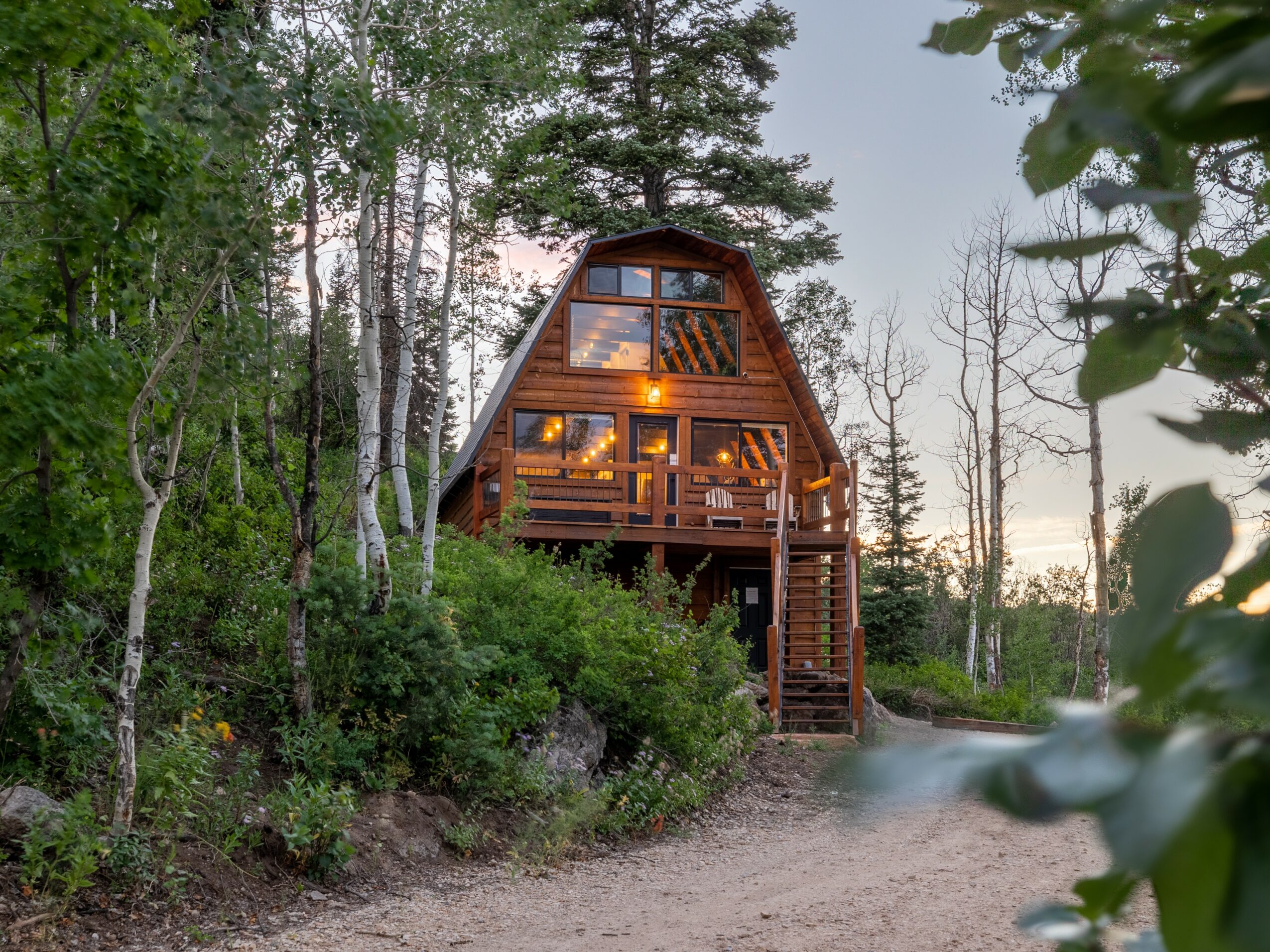
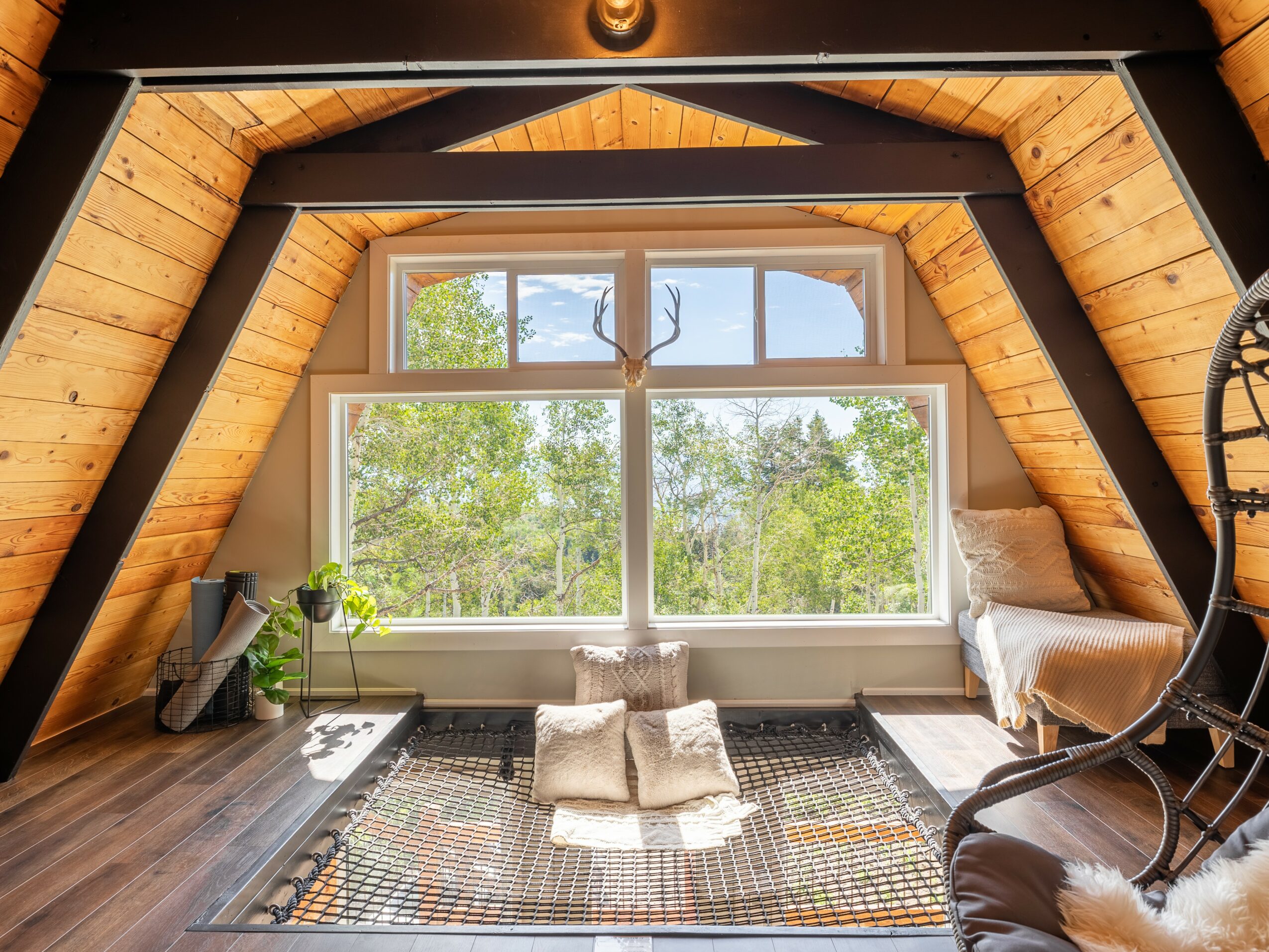
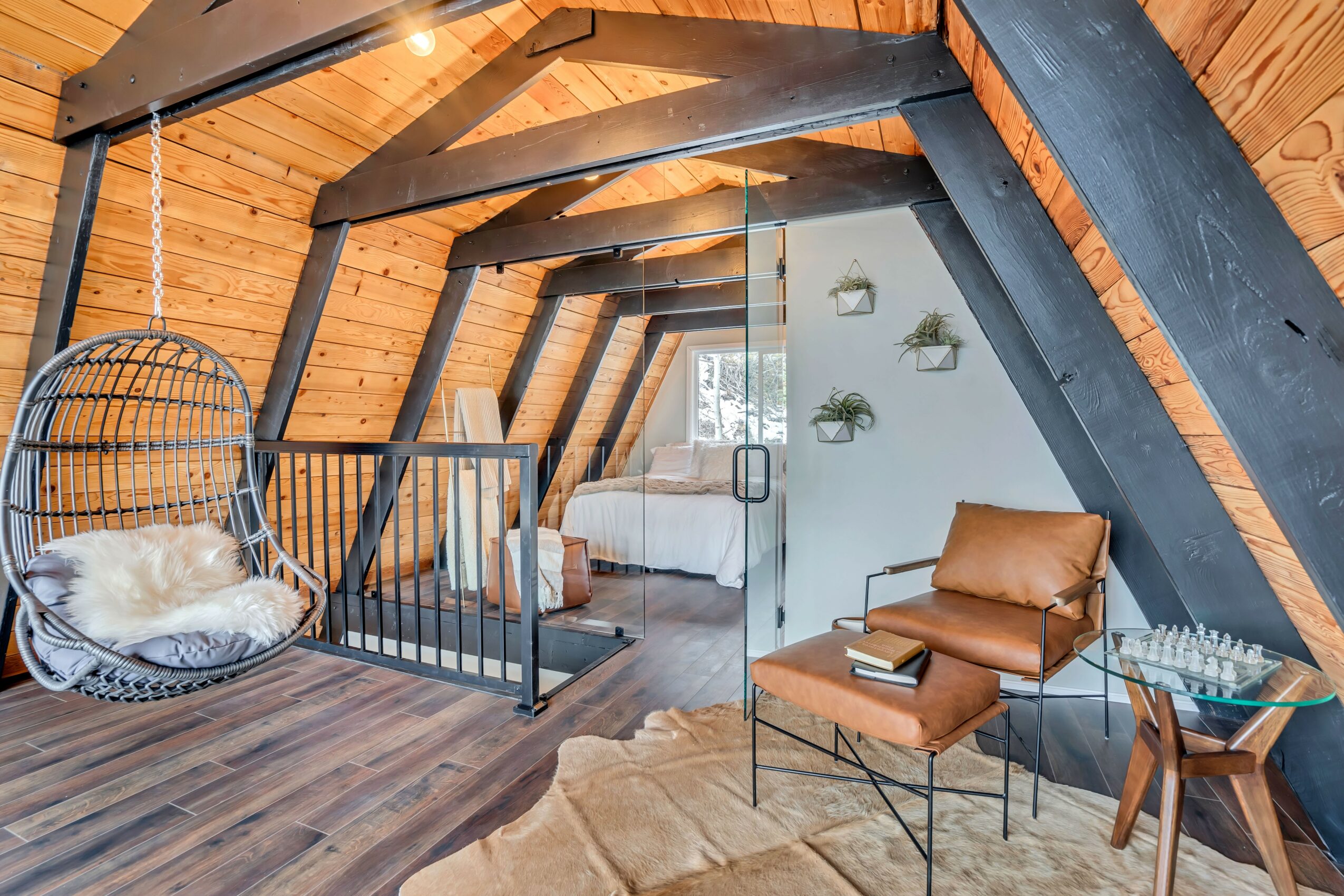
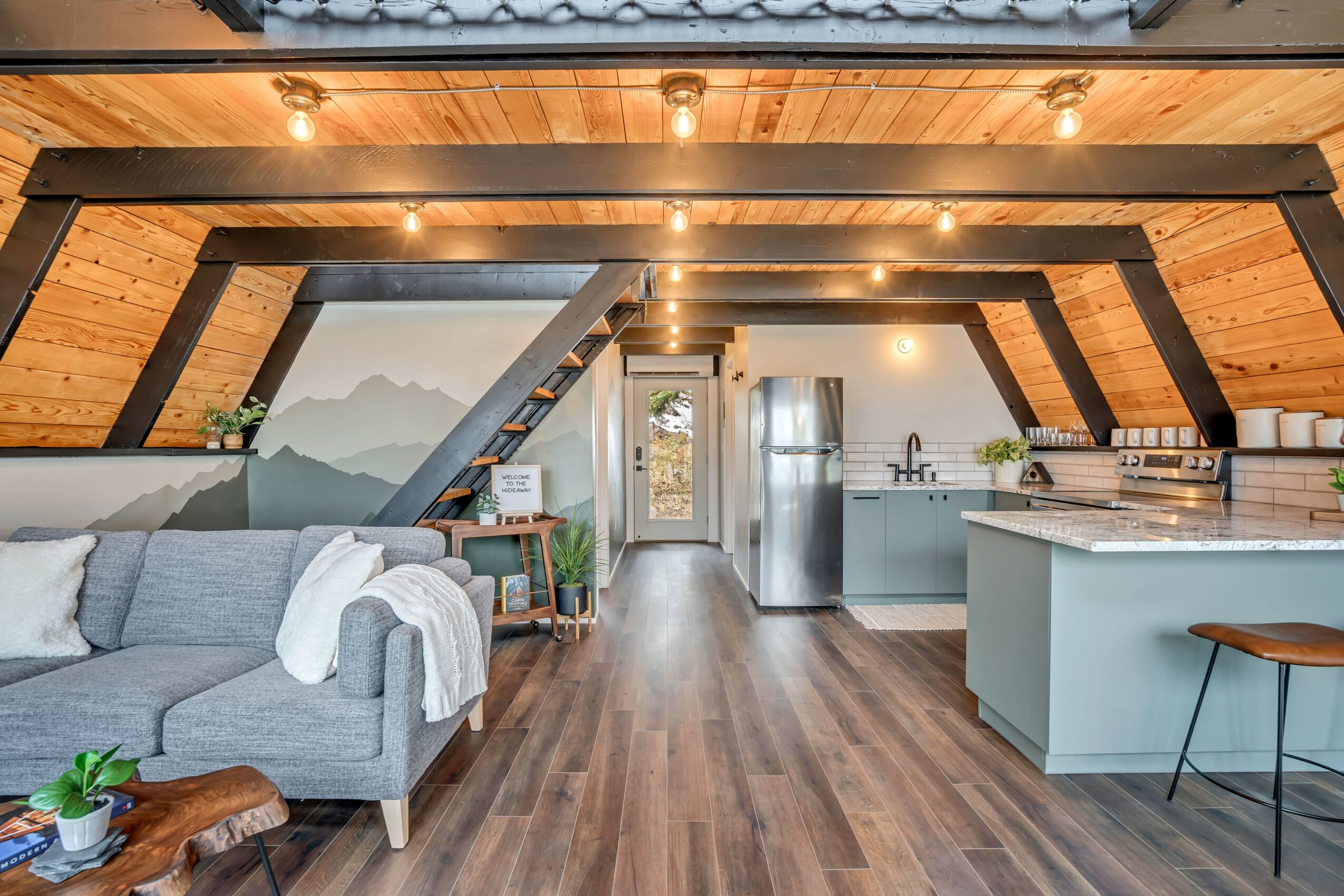
Image Credits
The Forgotten Cabins











